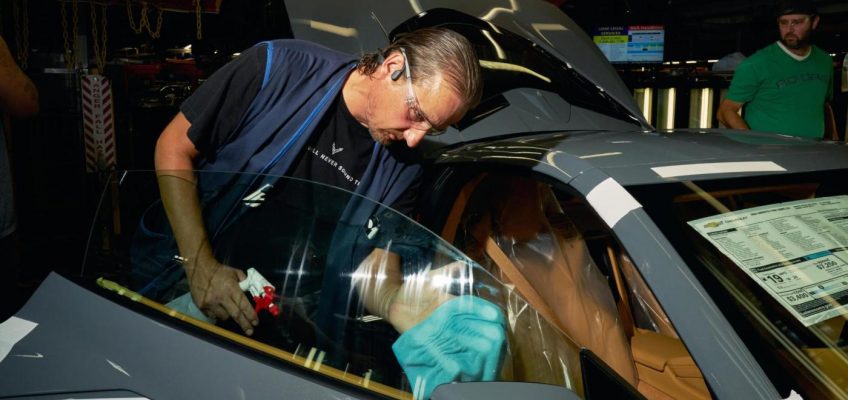The United States imposed 25% tariffs on imported auto parts Saturday that could sharply raise prices for new and used vehicles as well as for repairs and insurance.
The latest tariffs, which President Donald Trump ordered in March as part of his plan to promote domestic manufacturing, come after the 25% levies on imported cars that took effect in early April.
This round of duties on imported parts will have a broader impact because even cars made in the United States often have engines, transmissions, batteries or other components produced in other countries.
The administration said Tuesday that the tariffs were intended “to protect national security by incentivizing domestic automobile production and reducing American reliance on imports of foreign automobiles and their parts.”
The tariffs on parts will not apply to components from Canada or Mexico as long as those goods meet the requirements of a North American trade agreement negotiated during Trump’s first term. Among other things, that deal requires that a minimum percentage of the content of auto parts come from within North America.
The administration also said that imported auto parts would not be subjected to other levies, like the ones on aluminum and steel. And companies that make cars in the United States would be exempted for two years from having to pay a portion of the tariffs for imported parts.
Trump’s tariffs have already pushed up new car prices as customers flocked to dealerships to buy vehicles before the levies took effect. The tariffs are having a ripple effect on the used-car market as more people look for affordable alternatives to new cars, increasing demand and prices.
The tariffs on new auto parts are also expected to increase the cost of repairs and insurance premiums, because replacement parts will become more expensive. Rising car prices will contribute to overall inflation, which Trump had promised to bring down.
The president has insisted that the tariffs will bring manufacturing back to the United States. But even if that policy succeeds, consumers will still pay more for cars. Many goods, including lots of auto parts, can often be made much more cheaply in countries outside the United States.
“A lot of parts like fasteners, washers, carpet, wiring looms are just not available; we can’t even buy those parts here,” Jim Farley, CEO of Ford Motor, told CNN this week.
Automakers and suppliers say it will take years for them to relocate assembly lines. And they are unlikely to commit billions of dollars to domestic manufacturing because of uncertainty about the direction of trade policy.
Trump has frequently changed his mind about the size of tariffs and how they should be applied. On Tuesday, he modified some of the rules to allow automakers to avoid paying duties on a portion of the components they import for two years. The measures provide the industry some relief, but car prices will still rise by thousands of dollars, analysts said.
There will be unpredictable side effects. The financial stress could drive some suppliers out of business, creating parts shortages.
“Auto suppliers are already at thin margins,” said Lenny LaRocca, U.S. automotive industry leader at the consulting firm KPMG. “They can’t afford the full cost of 25% tariffs.”
Trump’s decision to exempt many parts from Canada and Mexico will, however, ease the burden on some companies.
The auto industry accounts for about 5% of Mexico’s gross domestic product and employs around 1 million people in the country. Vehicles and parts are by far Mexico’s largest exports to the United States.
“Little by little, this haze is clearing up,” Marcelo Ebrard, Mexico’s economy minister, said at an event with business leaders and diplomats Wednesday. “What we are going to face is a situation that is not as disadvantageous as perhaps many expected it to be.”
But Lana Payne, president of Unifor, Canada’s main automotive labor union, said that most of Canada’s parts are installed into vehicles assembled in that country. Those vehicles will still be hit with tariffs when they are exported to the United States.
“This partial tariff patchwork is reckless,” she said in a statement.
On Friday, General Motors said that because of tariffs it was eliminating a third shift at a pickup truck assembly line in Oshawa, Ontario. That plant will now build more trucks for Canadians, the company said. Unifor said the reduction would eliminate about 700 union jobs and was likely to cause parts makers to lay off an additional 1,200 people.
Prime Minister Mark Carney said GM’s decision is a “terrible manifestation” of the economic crisis Trump’s tariffs had created for Canada.
Related Articles
Homeownership further out of reach as rising prices, high mortgage rates widen affordability gap
Wall Street extends its gains to a 9th straight day, reclaiming losses since tariff escalation
Employers added a surprising 177,000 jobs as job market shows resilience. Unemployment stays at 4.2%
Trump says it’s Biden’s economy, but businesses and economists beg to differ
Lee Fang: Is your favorite influencer’s opinion bought and sold?
The tariffs will hit some carmakers harder than others.
But even companies that make vehicles in the United States will feel the pain. Rivian builds electric pickups in Illinois but imports batteries from South Korea and China that will be subject to tariffs.
This article originally appeared in The New York Times.


Leave a Reply